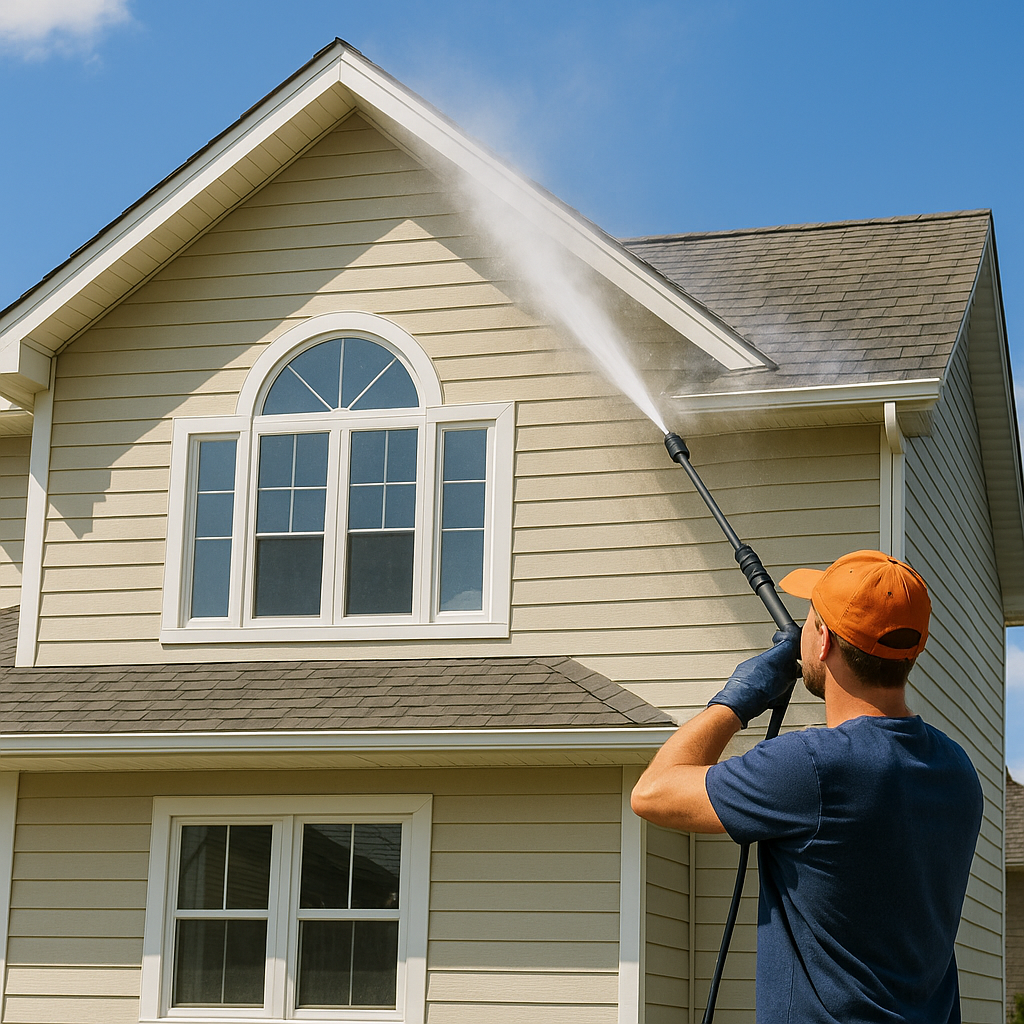A thorough pre-wash assessment identifies potential risks before they become costly problems, ensures compliance with building codes and tenant agreements, and maximizes your cleaning investment by targeting the right solutions for each specific surface and situation. By prioritizing these essential inspections, property managers and building owners transform routine maintenance into strategic asset protection that delivers measurable results.
What our Pre-Wash Inspection includes:
Comprehensive Documentation (with Photographs):
Take photographs of all areas for thorough documentation.
• Doors:
Verify that all doors are properly sealed.
• Windows:
Ensure that all windows are adequately sealed.
• Electrical Panels:
Inspect for any holes or exposed wires in electrical panels.
• Vinyl Siding:
Assess siding for holes, cracks, and discolouration.
• Drainage Conditions:
Evaluate drainage around doors and address any pooling water.
• Paint Condition:
Record any areas of chipping or peeling paint on walls and trim.
• Customer Accessibility:
Consider the potential for customer arrivals during work.
• Exposed Wiring:
Document any exposed wiring from old light fixtures and doors.
• Bay Doors:
Inspect bay doors for damage.
• Adjacent Properties:Adjacent Properties:
Assess the condition of neighbouring commercial properties.
• Light Fixtures:
Evaluate the condition and functionality of light fixtures.
• Security Cameras:
Inspect operation and placement of security cameras.
• Driveway Condition:
Evaluate the condition and accessibility of driveways.
• Landscaping:
Inspect the health and maintenance of bushes and flower beds.
• Stairs and Railings:
Verify safety and stability of stairs and railings.
• Awnings:
Assess condition and integrity of awnings.
• Outdoor Fans:
Check for damage and the operational status of outdoor fans.
• Address Visibility:
Ensure that address numbers are not damaged.
• Signage:
Evaluate the condition and of all signage.
• Vehicles:
Check for any company vehicles on-site and their condition.
• Outlet Covers:
Ensure that all outlet covers are secure intact and sealed or covered.Commercial Safety Measures
• Protect Landscaping:
Cover bushes and flower beds to prevent damage.
• Water Management:
Address any pooling water near entrances by pumping it out.
• Neighbour Notification:
Inform neighbouring businesses of your presence and the nature of the work
being performed.
• Electrical Safety Precautions:
Cover exposed outlets, cameras, and lighting fixtures to ensure safety during
work.
• Document Problematic Areas:
Take photos of any conditions that may present future issues.
• Client Communication:
Inform the client of any defects or problems discovered prior to commencing
work.
• Timing Considerations:
Schedule work to be performed after regular business hours, if necessary, to
minimize disruptions.
• Arrival Notifications:

